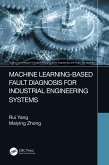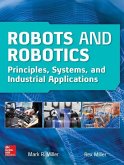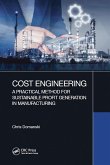Industrial engineering stands at the crossroads of science, technology, and innovation. It is a discipline that seeks to optimize complex systems, processes, and operations, ensuring that resources are utilized efficiently while achieving desired outcomes. From manufacturing floors to healthcare systems, from supply chain networks to energy production, industrial engineering plays a vital role in shaping the modern world. In today's fast-paced and technology-driven era, the field of industrial engineering has undergone a remarkable transformation. The integration of cutting-edge technologies such as artificial intelligence, machine learning, robotics, the Internet of Things (IoT), and big data analytics has opened new doors for optimization and innovation. These advancements have not only redefined traditional practices but have also expanded the scope of industrial engineering to encompass new domains, including sustainability, smart manufacturing, and digital transformation. This book, Industrial Engineering: New Methods, Applications, and Case Studies, serves as a comprehensive exploration of the evolving landscape of industrial engineering. It delves into the latest methodologies, tools, and applications that are shaping the industry while providing real-world case studies that demonstrate their impact. What This Book Covers * New Methods: A deep dive into the latest optimization techniques, simulation and modeling methods, and process improvement frameworks. These sections explore both established practices and emerging approaches that are transforming the way industries operate. * Applications Across Industries: From manufacturing to healthcare, energy to aerospace, this book highlights the diverse applications of industrial engineering. It showcases how innovative solutions are being applied to tackle challenges and drive efficiency in various sectors. * Case Studies: Real-world examples of successful implementations bring the concepts to life. These case studies provide actionable insights and practical applications of industrial engineering principles in areas such as lean manufacturing, robotics, predictive maintenance, and green processes. Why This Book is Important The role of industrial engineering is becoming increasingly critical as businesses strive to remain competitive in a globalized and technologically advanced world. The integration of digital technologies and data-driven decision-making processes has made industrial engineering more dynamic and impactful than ever before. This book aims to equip readers with the knowledge and tools needed to navigate this evolving field. Whether you are a student, practitioner, or industry leader, this book will serve as both a guide and an inspiration. It not only addresses the "how" of industrial engineering but also explores the "why"-the purpose and potential of applying these methods to create systems that are efficient, sustainable, and innovative. The Future of Industrial Engineering As we look ahead, the future of industrial engineering is filled with possibilities. The ongoing advancements in artificial intelligence, quantum computing, and autonomous systems promise to unlock new frontiers of optimization and productivity. Furthermore, the growing emphasis on sustainability and circular economies presents opportunities for industrial engineers to lead the way in building a better, greener future. This book invites you to embark on a journey through the evolving landscape of industrial engineering. Together, we will explore its transformative potential and discover how it can address the challenges of today while shaping the industries of tomorrow. Let us begin this exploration into the heart of industrial engineering-a discipline that is constantly reinventing itself to meet the demands of an ever-changing world.
Hinweis: Dieser Artikel kann nur an eine deutsche Lieferadresse ausgeliefert werden.
Hinweis: Dieser Artikel kann nur an eine deutsche Lieferadresse ausgeliefert werden.








